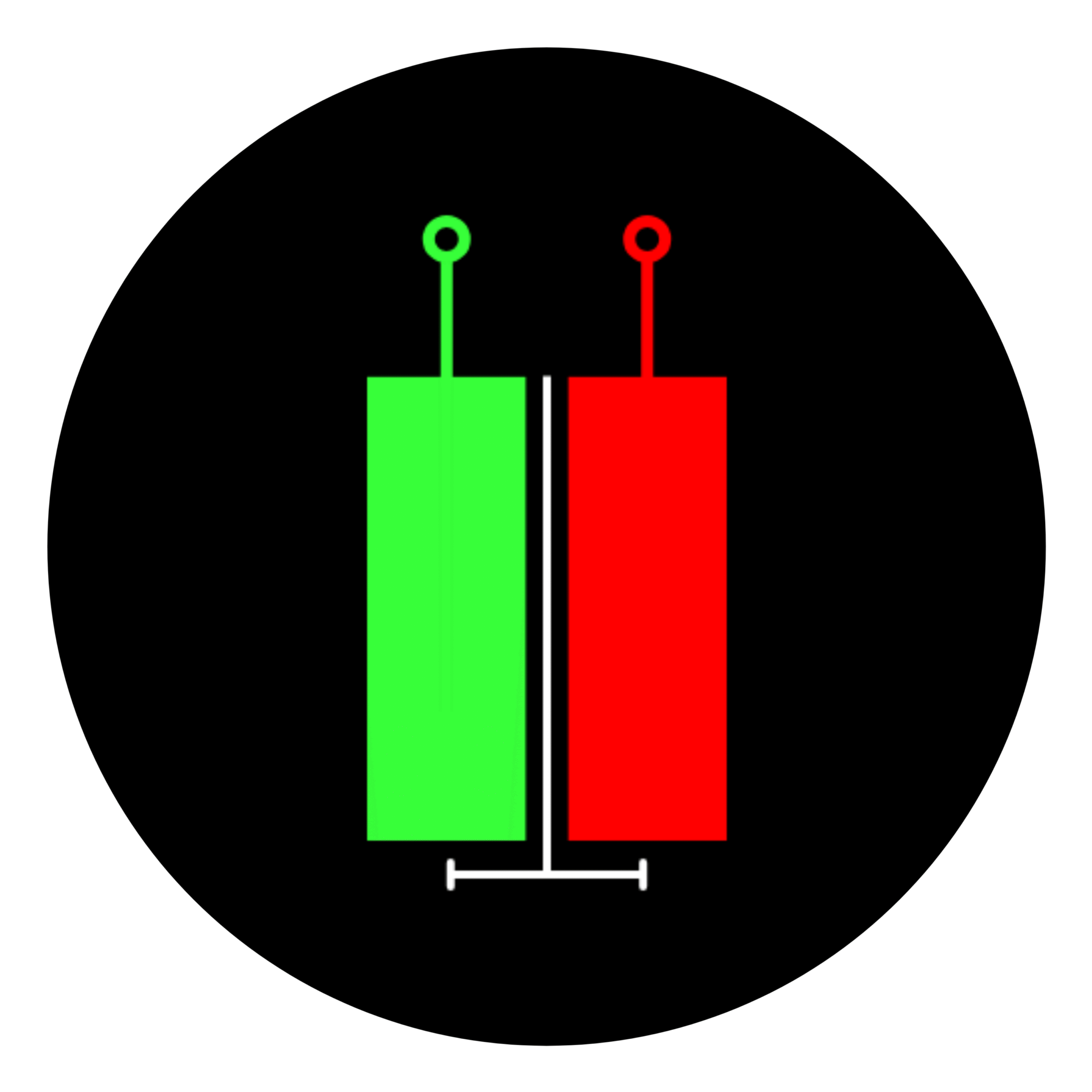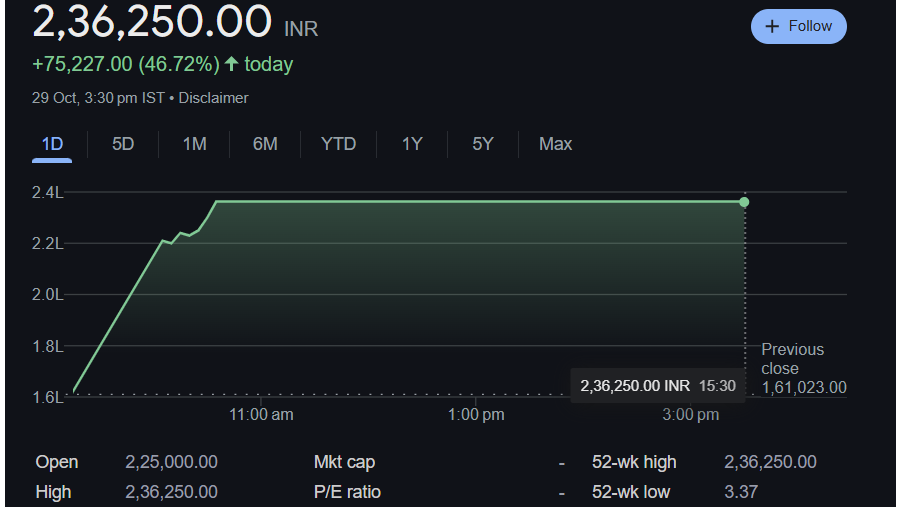Shares of Elcid Investments, an investment company, soared by an extraordinary 6.7 million percent on Tuesday, reaching ₹2,36,250 per share. This price surge allowed it to surpass MRF as the highest-priced stock in India in absolute terms. This impressive jump occurred following a special call auction “with no price bands” for the stock, which last traded at ₹3.5 per share and holds a book value of over ₹4 lakh per share.
This massive discount left existing shareholders unwilling to sell. To address this undervaluation, the exchanges organized a special auction session for holding companies with deep discounts compared to their book value. This session led to a fair value discovery of its price
Elcid Investments holds a 1.28 percent stake in Asian Paints, valued at ₹3,616 crore, according to Gaikar. Even at ₹2.3 lakh per share, Elcid trades at a price-to-book ratio of just 0.38.
In a 2024 SEBI circular, a new mechanism was introduced to enhance price discovery for investment companies (ICs) and investment holding companies (IHCs).
What are IC and IHC?
Investment Companies (ICs) and Investment Holding Companies (IHCs) are financial entities with a focus on managing investments rather than operating traditional business activities.
- Investment Companies (ICs): These companies primarily invest in assets like stocks, mutual funds, and debentures, with their main source of income being the returns generated from these investments. They often hold diverse portfolios across various sectors.
- Investment Holding Companies (IHCs): IHCs usually invest primarily in their own group or affiliated companies, holding a significant portion of assets within their corporate group. They function as a way to organize and manage investments within a single organization and generally do not engage in other business operations.
SEBI noticed that many ICs and IHCs trade significantly below their book value. To help improve liquidity, fair price discovery, and overall investor interest in the stocks of such companies, SEBI introduced a framework for ‘special call auction with no price bands’ for these stocks.
What is a call auction?
A call auction is a trading method used to determine a stock’s price by pooling buy and sell orders over a fixed period and matching them at one single price. Instead of continuous trading, all orders are gathered and processed simultaneously to establish an “equilibrium price” where the maximum number of trades can happen.
Read more about call auctions here
What Does Price Band Mean?
In stock trading, a price band is the maximum range within which a stock is allowed to fluctuate in a single trading session. This range is defined by two levels:
- Upper Circuit (Upper Price Band): The highest price to which a stock can rise in a day. If the price hits this level, it temporarily halts upward trading, preventing overly rapid price increases.
- Lower Circuit (Lower Price Band): The lowest price to which a stock can fall in a day. If the price reaches this limit, it prevents further declines and gives the market time to stabilize.
These bands protect investors by reducing extreme price volatility. In the case of SEBI’s special call auction, removing the price bands allows the stock price to adjust freely based on demand and supply, facilitating more accurate price discovery.
The introduction of a special call auction with no price bands is a significant move by SEBI to enhance fair price discovery for Investment Companies (ICs) and Investment Holding Companies (IHCs) trading below their intrinsic value. By lifting price restrictions, SEBI allows the market to accurately reflect these companies’ true worth based on demand and supply, as seen with Elcid Investments’ recent price adjustment. This mechanism not only benefits investors by providing fair valuations but also aims to improve liquidity and investor confidence in under-traded stocks. As SEBI continues to develop policies that support transparent trading, investors can expect more opportunities for fair valuation across the market.

